Essential Hurricane Safety Tips To Stay Safe This Hurricane Season
Understanding and implementing crucial hurricane safety tips isn't just advised, it's absolutely essential. This guide will walk you through actionable steps you can take before, during, and after a hurricane to protect yourself, your loved ones, and your property, ensuring you're as prepared as possible when disaster strikes.
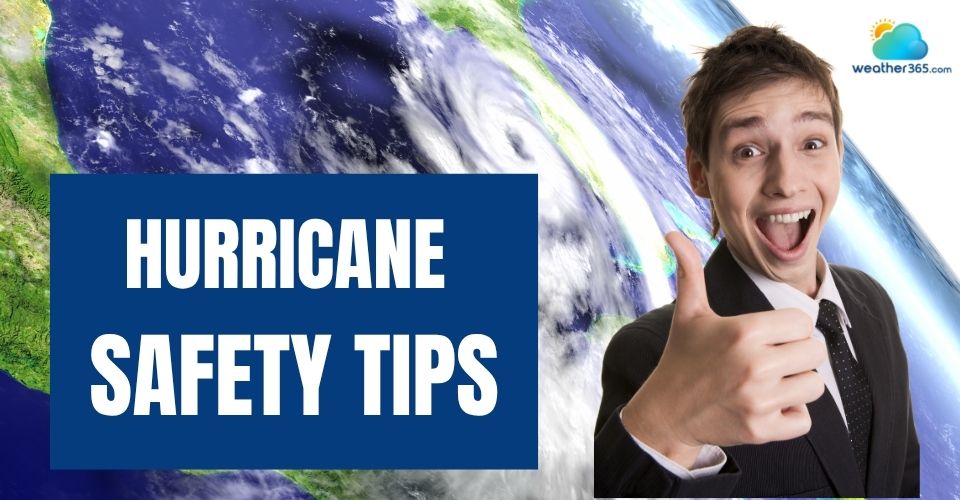
Hurricane tips for safety
Stay informed about weather alerts
Knowing the difference between hurricane watch and warning is also important.
Each weather alert will provide different information and advise different actions.
Have a look at this picture below:
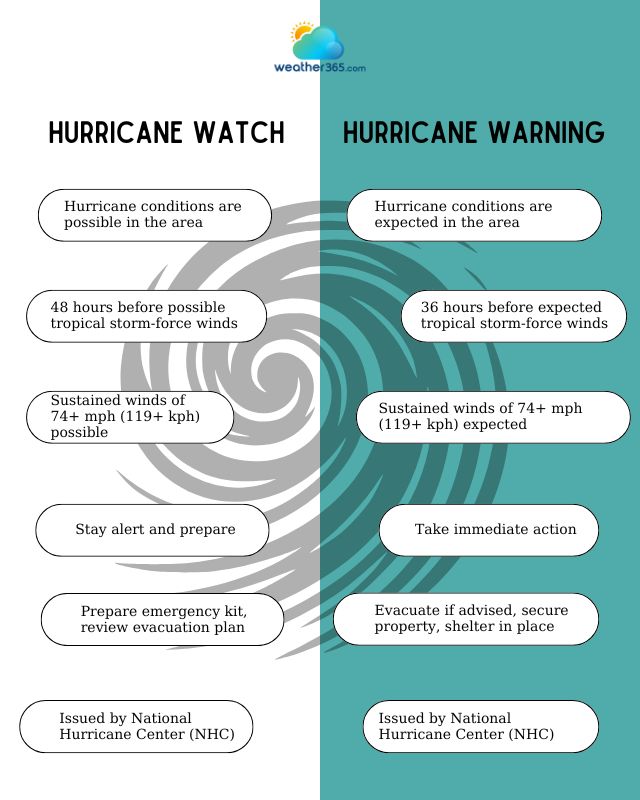
Difference between a hurricane watch and warning
Hurricane safety tips before the hurricane season
Long before the first tropical storm watch is issued, implementing hurricane safety tips is a proactive measure that can significantly reduce risks.
Preparing well in advance of hurricane season allows you to make calm, informed decisions and secure everything necessary without the pressure of an approaching storm.
If conditions are right for a hurricane in your area, here are the safety tips for hurricanes you need to follow:
-
Be informed. Updates information from TV, weather websites, and local authorities.
-
Plan an evacuation plan: Prepare your evacuation route to be ready to leave when given an order.
-
Check your emergency kit, including water, boots, flashlights, batteries, a radio, matches, and medications.
-
Prepare hurricane supply list food, and make sure the food is enough for your family members for at least 4-5 days.
-
Trim trees, branches near your house and electrical lines. Pick fruits off trees as they can be blown up by the strong wind and cause further damage.
-
Prepare for possible outages, like purchasing a generator, filling a full gas tank, and using rechargeable lamps.
-
Take photos or videos to record your property's locations. Keep important documents in a secure location.
-
Reinforce your home, especially the doors, windows, walls, and roof.
-
Examine insurance policies and make a list of your belongings if you have the time.

Safety tips for a hurricane
Hurricane safety tips during a hurricane
Once a hurricane is upon you, the focus shifts entirely from preparation to immediate action and survival, making hurricane safety tips during a hurricane crucial for safeguarding lives.
At this critical stage, knowing precisely what to do can help you navigate the storm's most dangerous hours and protect yourself from its destructive forces.
Follow these safety tips for hurricane:
-
DO NOT go outside unless it is really necessary. Strong winds up to 100 mph can push you into danger.
-
Children should be inside because they can be blown away.
-
Keep a hurricane lamp burning because it can make the night more tolerable.
-
Stay under a table or stand in a sturdy closet if you see signs of breaking up.
-
Stay away from windows.
-
NEVER attempt to walk, swim, or drive through floodwaters.
-
Follow any guidance from local officials. When having an order to evacuate, do so immediately. Bring only essential items.
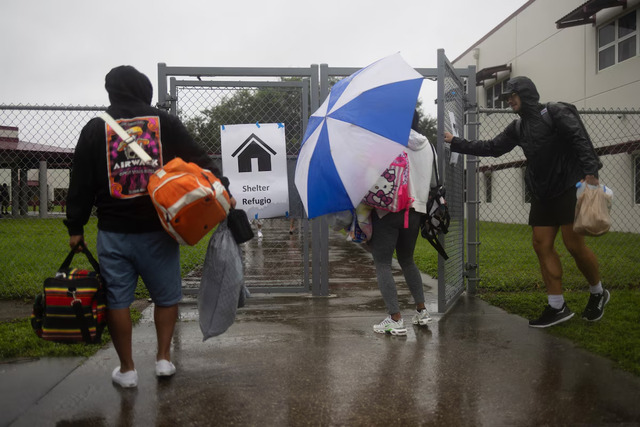
If evacuation is ordered, do so quickly
Evacuation steps for a hurricane
Inquire about community evacuation plans with the Emergency Management Office in your area.
Find out the locations of possible public shelters and the suggested evacuation routes.
If you do not have a car, communicate with friends or your local government.
When you are asked to evacuate, you should:
-
Check with neighbors to see if they need help, like sharing transportation.
-
Close and lock all windows and doors.
-
Do not call the local fire or police departments for information because they need their lines for emergency cases.
-
Put valuable items in a higher location in your house.
-
Stay informed through your Emergency Alert System (EAS) radio station
-
Turn off lights and unnecessary devices.
-
Follow designated evacuation routes.
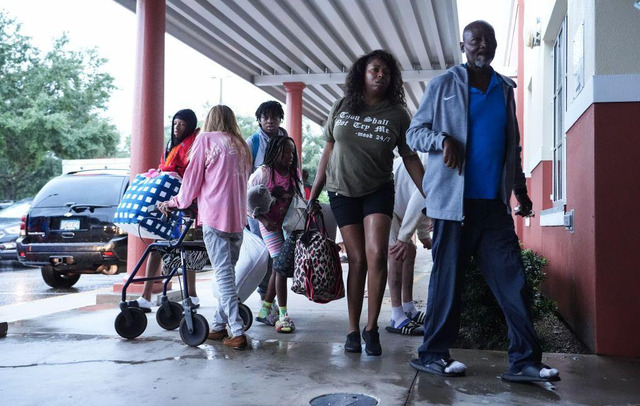
People move to a safer place before the devastating hurricane hits
Hurricane safety tips after a hurricane
Even after a hurricane's winds subside and the immediate danger seems to pass, new hazards often emerge. You need to take vigilance and careful action to protect yourself and begin the process of recovery.
-
For those hurt during the storm, seek medical assistance at hospitals, clinics, or first-aid stations.
-
Do NOT touch any electrical wires that are loose or dangling. Inform the local police station, the parish council, or the power company about these.
-
Directly notify the local water resources authority, public works department, or parish council of any broken water or sewer mains.
-
Don't use stored water for gardening, car washes, or house washing right after the hurricane because it can be contaminated.
-
Until you are certain that a safe water supply has been restored, boil all drinking water.
-
Be mindful of fallen trees. Gather fallen branches and other debris, then pile them in a convenient location to collect.
-
Going outside with open shoes to avoid broken glass and dangerous objects.
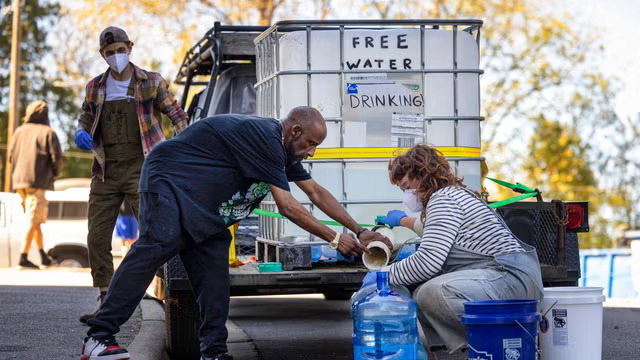
Boil water instead of drinking water directly from the tap
Conclusion
Even with the best preparation, you can still sustain damage from unexpected events like a hurricane. However, the useful hurricane safety tips above help you be proactive in facing natural disasters and limit damage to the least level.

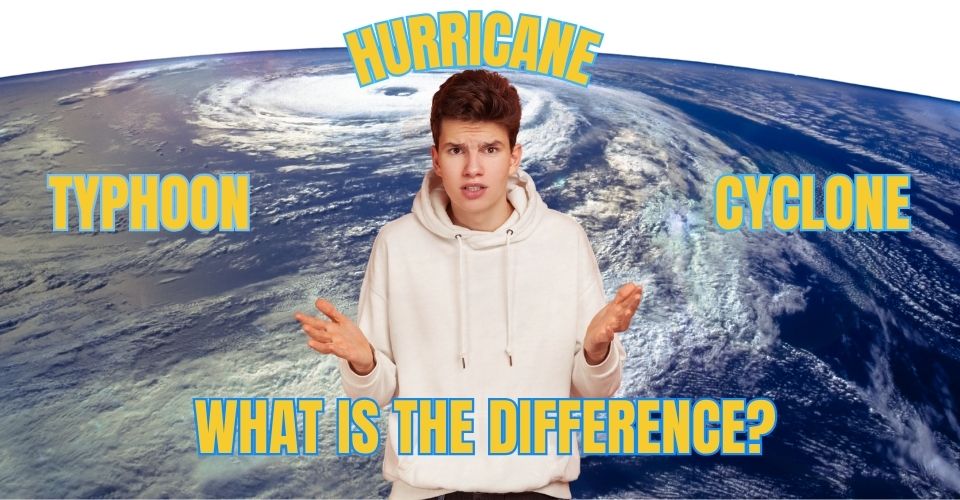
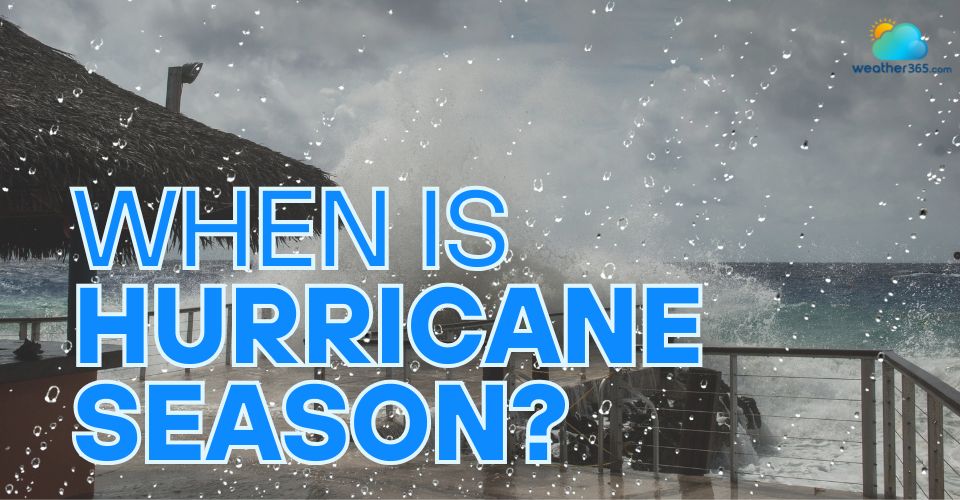
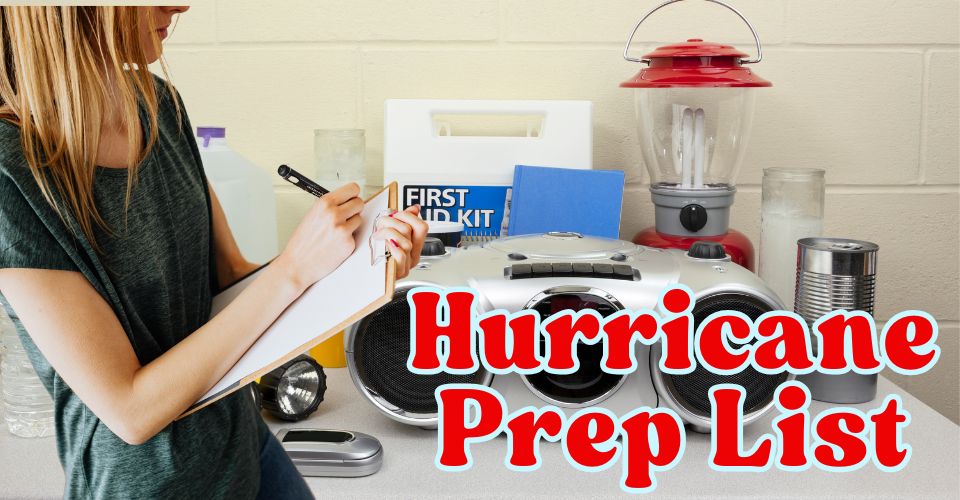
0 Comment
Leave a comment
Your email address will not be published. Required fields are marked *